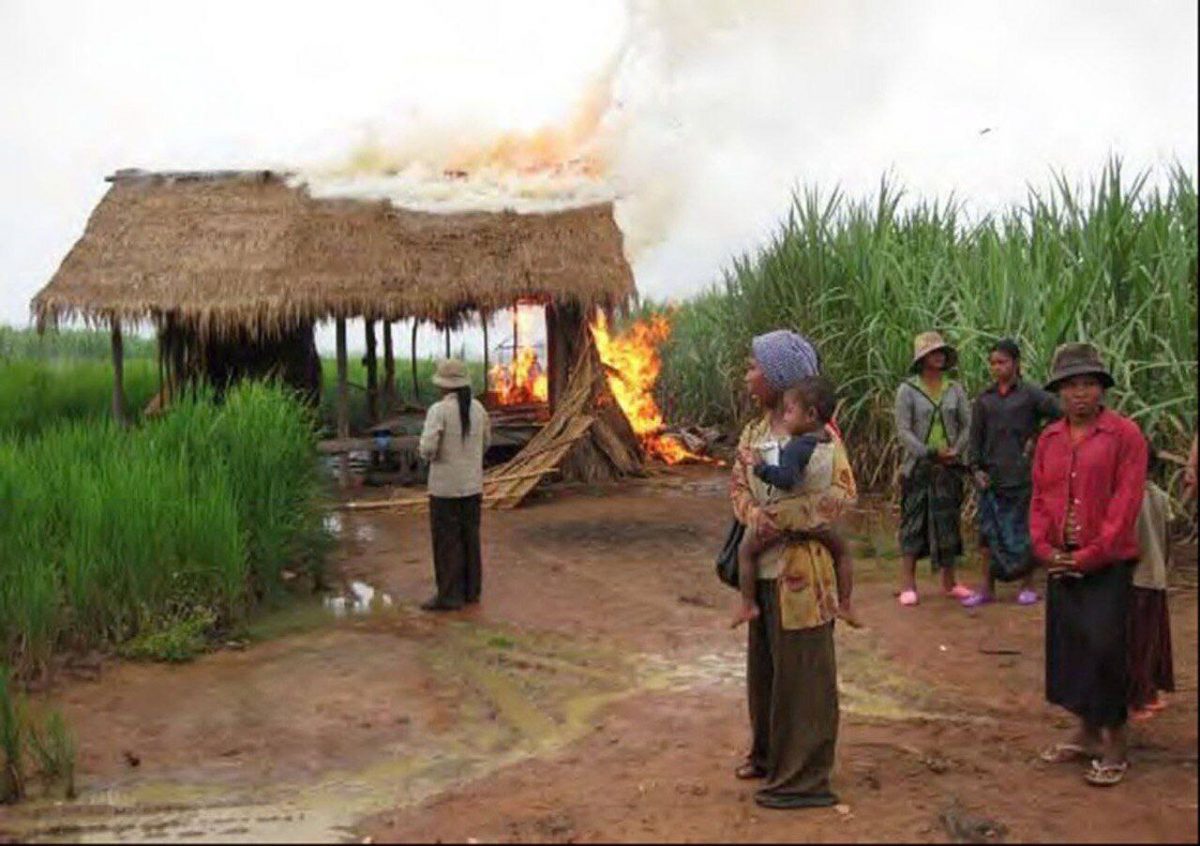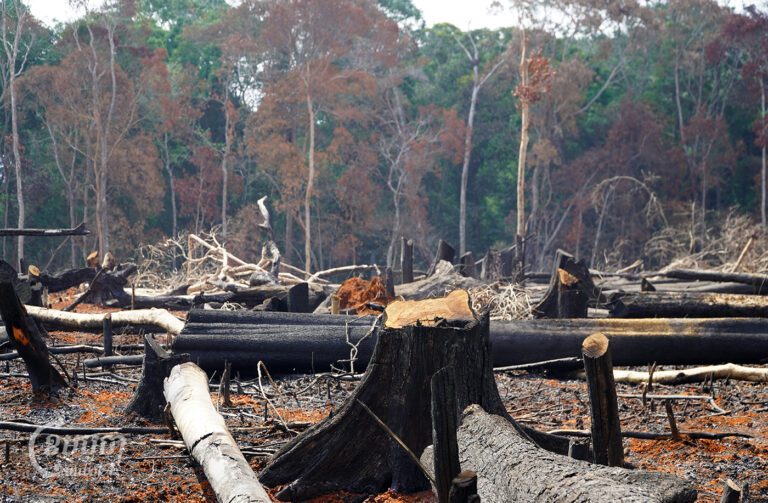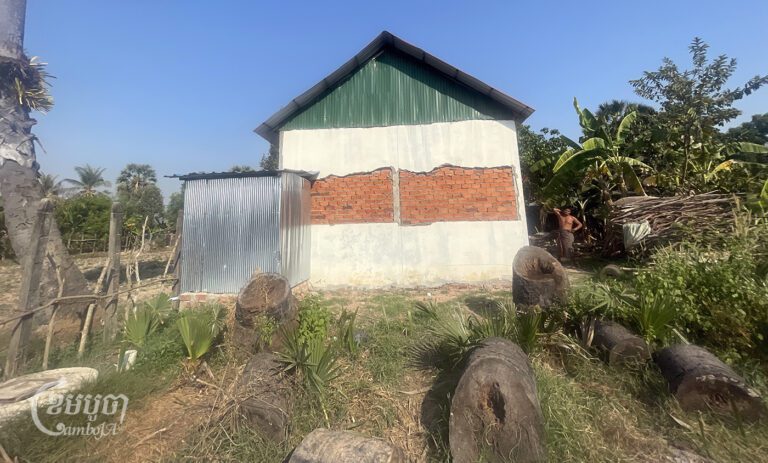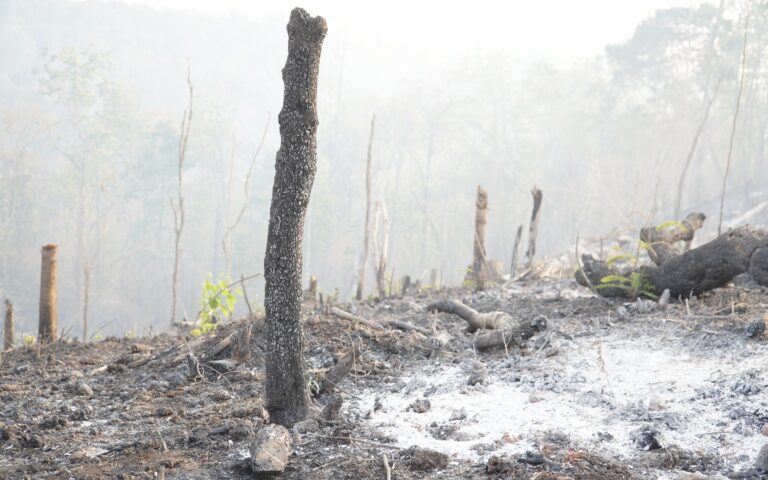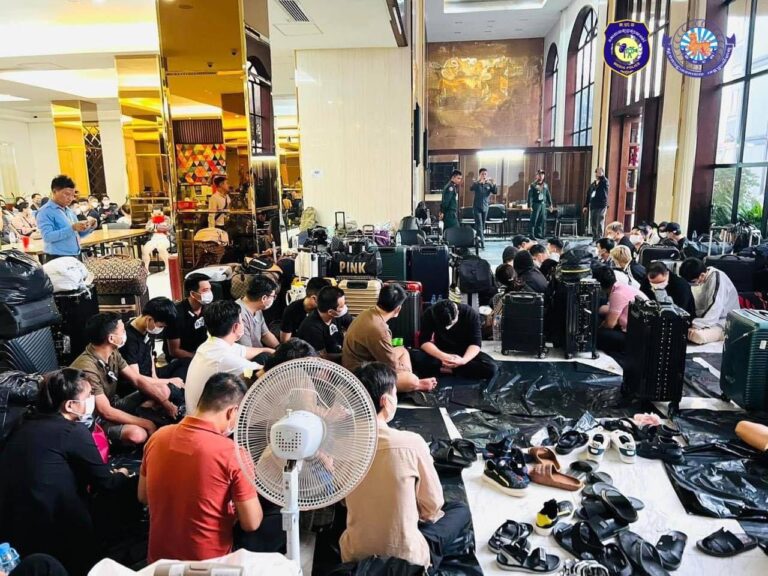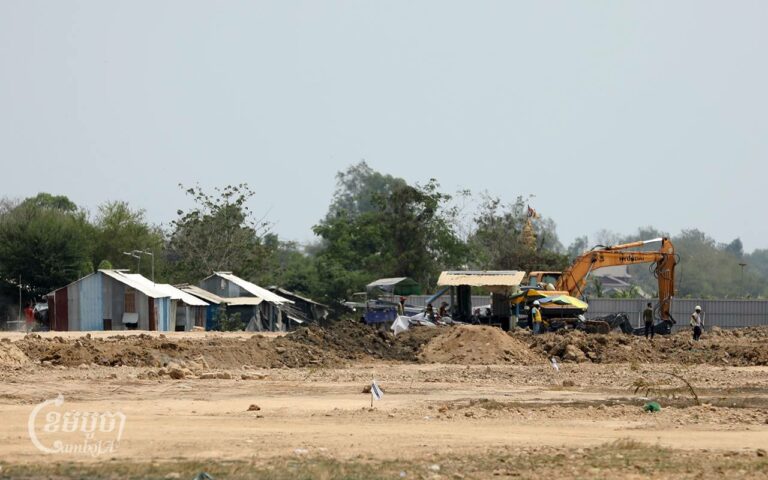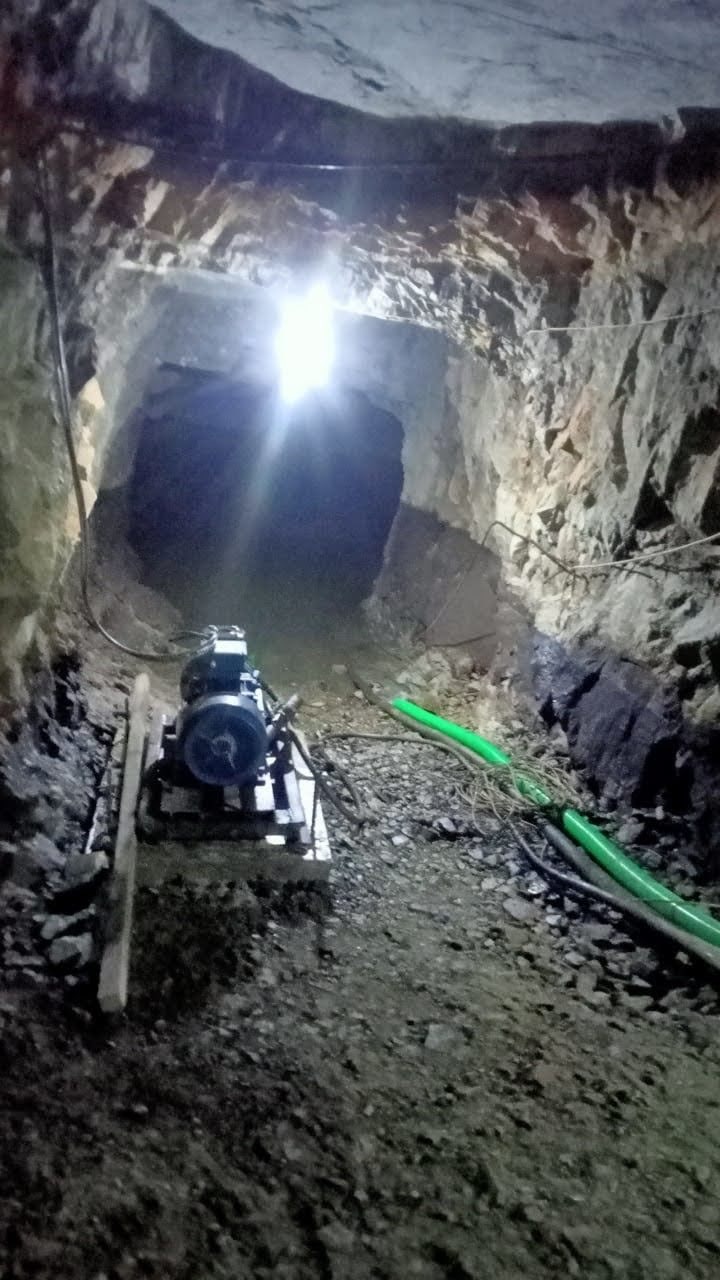Three villagers from Cambodia traveled to Thailand to file documents against one of the world’s largest sugar manufacturers, Thai-owned Mitr Phol Sugar Co Ltd, at a Thai court on Wednesday.
The villagers, who are the plaintiffs, and Mitr Phol, were required to submit evidence on March 27, according to Sor Rattanamanee Polkla, a Thai lawyer representing the trio. She is also the executive coordinator of the Community Resource Centre Foundation.
“Thursday was evidence examination day in which both parties brought their documents to present in court. Both sides also need to check the documents,” Polkla told CamboJA News.
The parties requested for time to go through the documents, she said, adding that the court fixed May 9 for hearing.
Plaintiffs usually appear in court on testimony day although they are allowed to sit through the whole trial. This is one way for the plaintiffs to understand the process and be part of the case at every stage, she said.
Ma Oukchoeun, a victim from Oddar Meanchey, told CamboJA News that the communities were affected by Mitr Phol and had been seeking support from local and international NGOs to file complaints within the Thai legal system and outside Thailand.
They did this to pressure the company to provide fair compensation after 700 families were evicted from their own land and whose houses were burnt down more than a decade ago.
“I cannot assume that the case with the Thai court would yield results but we need to file all the documents for examination.
“We’ve come to court with the support of local and international NGOs which provided a solution for the communities impacted by the sugarcane plantation company,” Oukchoeun said.
Oukchoeun was sentenced to two years jail by the Siem Reap provincial court for allegedly clearing the forest land illegally, a charge he denied in 2009. With the help of an NGO, he later moved from Oddar Meanchey and settled in Siem Reap province.
He said the community wants the world to see how Cambodian people are suffering from injustice on their own land, which the government granted as an economic land concession to three of Mitr Phil’s subsidiaries in January 2008. His people view this as a human rights violation to the original land owners.
“This is a landmark case where we seek collective justice for the affected families, not just individuals. It will show the world that we are suffering due to this company. I hope the Thai court will do us justice,” Oukchoeun shared.
Apparently, a similar incident occurred in Preah Vihear, where villagers were subjected to violent evictions by the authorities following the granting of an economic land concession, he observed. “It’s appalling, particularly in a country with constitutional law and territorial integrity.”
Between 2008 and 2009, over 700 families in 26 villages were forced to give up their land after a 9,400-hectare concession was officially approved, a report by Inclusive Development International stated. To make way for the industrial sugarcane plantation, families were “forcibly and violently” evicted from the land, with their homes and crops destroyed.
In 2015, Mitr Phol agreed to the cancellation of the concession and withdrew from Cambodia, returning the land to the state. When no compensation was offered, the families sued Mitr Phol in Thai courts in 2018. In the meantime, local and international NGOs continued to pressure the sugar company to take responsibility and remedy the situation.
Back in 2008, when Mitr Phol was granted the concession, they promised to invest millions of dollars and create thousands of jobs. Instead, the villagers suffered forced evictions, environmental damage, reduced livelihoods while the forest was destroyed for the sugar plantation, Oxfam said in a report.
In 2014, the villagers, supported by Equitable Cambodia and the Cambodian League for the Promotion and Defence of Human Rights (Licadho), filed a complaint with the Thai Human Rights Commission to investigate human rights abuse on land concessions in Oddar Meanchey, Cambodia.
At the end of its investigation, the commission found numerous human rights violations by Mitr Phol, underlining the impoverishment of the population, and asked the sugar company to repair the damage caused.
Mitr Phol did not respond to requests for comment sent via email.
Licadho operation director Am Sam Ath said the community has sought support from various NGOs to file a lawsuit in the Thai courts against the company over human rights violations for many years. They are seeking remedy from the company, which marks the first legal case involving Cambodian citizens.
“The community gathered the documents by themselves although several NGOs supported them from behind. It’s a landmark case for a community in Cambodia that brought a case to Thai courts,” he said.
Amid this, the national human rights commission launched an investigation over land grab and human rights cases in Oddar Meanchey, seeing that it was related to the Thai company, Sam Ath told CamboJA News.
Prior to the moratorium on land concessions announced by the former prime minister in 2012, economic land concessions saw major approvals for private companies, which often failed to conduct environmental and social impact assessments.
“As a result of those concessions, people lost farmlands, which overlapped approved land [boundaries],” Sam Ath explained.


